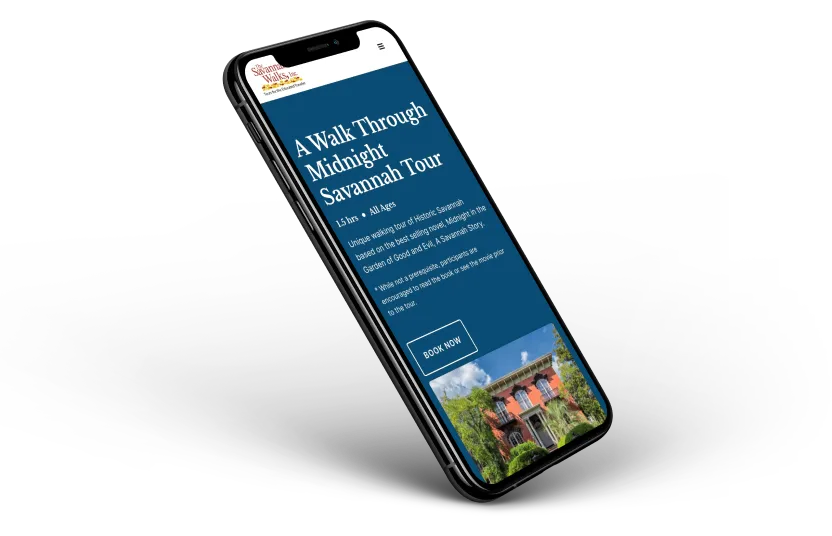How to Find the Right Keywords for Your Small Business - A Step-by-Step Guide

Introduction
In this step-by-step guide, we'll explore how to find the right keywords for your small business — an essential skill for attracting potential customers online and improving your local SEO.
Keywords are Crucial to Local Businesses

With more consumers turning to search engines to find products and services, understanding how to use keywords effectively can make or break a business's online presence.
For local small businesses, this means knowing not only what people are searching for, but also how to tailor those search terms to target the specific geographic area they serve.
Drive Targeted Traffic to Your Website
Local keywords play a critical role in driving targeted traffic to your website.
By focusing on search terms that include your city or region, you can ensure that you're reaching the people most likely to become your customers—those who are actively seeking your services in your area.
Whether it's "best bakery in Brooklyn" or "plumbing services in Austin," using the right local keywords can connect you directly with potential clients.
Reach the Right Audience

Ultimately, the goal of local keyword research is to reach the right audience—the people in your community who are ready to engage with your business.
With the right keyword strategy in place, you can improve your online visibility, attract more local customers, and stay competitive in a crowded market.
What Are Keywords and Why They Matter?

Keywords are the words and phrases that people type into search engines when they’re looking for information, products, or services.
For small businesses, these keywords represent the bridge between what you offer and what potential customers are searching for. When used correctly, keywords help search engines understand the content on your website and rank it accordingly in search results.
For local small businesses, keyword optimization is especially crucial. It’s not just about driving any traffic to your site; it’s about attracting the right visitors—the ones who are most likely to convert into paying customers.
Effective keyword use helps increase your visibility in search engine results, making it easier for your target audience to find you online.
There are two main types of keywords to consider: short-tail keywords and long-tail keywords.
- Short-tail keywords: These are broad search terms, often consisting of one or two words, like “bakery” or “plumbing services.” While these terms can drive a lot of traffic, they are often highly competitive and may not always attract the most relevant audience for a small, local business.
- Long-tail keywords: These are more specific phrases, often including three or more words, such as “gluten-free bakery in Brooklyn” or “24-hour plumbing services in Austin.” Long-tail keywords might attract less traffic overall, but the visitors they do bring are often more qualified—meaning they’re closer to making a purchasing decision.
By understanding these two types of keywords and how they function, small businesses can better position themselves to attract highly targeted, relevant traffic that’s more likely to convert into customers.
In the next section, we'll explore keyword intent, which will help you further refine your keyword strategy to match what your audience is truly looking for.
Keyword Intent: Understanding What Your Audience is Looking For

Not all keywords are created equal, and that's where keyword intent comes into play. Keyword intent refers to the purpose behind a search query—what the user is hoping to accomplish when they type a phrase into a search engine.
For small businesses, aligning your keywords with the right intent is critical to attracting customers who are ready to take action.
There are four main types of search intent:
1. Informational Intent

This is when users are looking for information or answers to their questions. They may search for things like “how to fix a leaky faucet” or “best cake recipes.” While these users aren’t necessarily looking to make a purchase right away, they could become potential customers down the road if you provide helpful content that answers their questions.
2. Navigational Intent

This is when users are trying to find a specific website or location. For example, someone might search “Starbucks near me” or “Nike official store.” These users already know where they want to go and are looking for direct access to a specific business or service.
3. Commercial Intent

Commercial intent falls between informational and transactional intent. Users with commercial intent are researching products or services with the intent to make a purchase soon, but they are still comparing their options. Examples include searches like “best plumbers in Austin” or “top-rated birthday cakes in Brooklyn.” These users are looking for more details or reviews before making a final decision.
4. Transactional Intent

These are the most valuable searches for small businesses. Users with transactional intent are ready to make a purchase or take a specific action. Searches like “buy birthday cake in Brooklyn” or “plumber in Austin TX open now” indicate that the user is prepared to convert into a paying customer immediately.
Intent Helps You Choose the Right Keyword to Target
For small business owners, understanding keyword intent means you can choose the right phrases to target at different stages of the buyer's journey.
For instance, an informational blog post about “common plumbing problems” can help attract visitors who may not need your services immediately but might remember your business when they do.
Meanwhile, targeting transactional keywords like “emergency plumbing services in Austin” can connect you with people who are ready to make a call right now.
By aligning your keywords with the intent of your audience, you ensure that your website offers the right content at the right time—whether it’s answering a question or prompting a direct sale.
This not only increases the likelihood of attracting relevant traffic but also helps build trust with potential customers by meeting their needs at every step of their search journey.
In the following section, we’ll explore how to start your keyword research and use free tools to find the best keywords for your business.
How to Start Your Keyword Research: Tools and Techniques

Starting your keyword research might seem daunting at first, but with the right tools and techniques, small business owners can quickly uncover valuable insights into what their target audience is searching for.
Below are some practical steps and free tools you can use to find the best keywords for your local business.
1. Brainstorming: Generate Ideas from Your Business and Customers

The first step in keyword research is to brainstorm potential keywords based on your business offerings and your customers' needs. Focus on the products or services you provide, and think about the specific terms your target audience would use to find them.
Instead of relying on outdated phrases like "best bakery near me," remember that Google now prioritizes proximity and relevance automatically when users search. Therefore, focus on geographic keywords and terms that reflect how people would naturally search for your business.
Consider the following steps:
- Identify core services or products: What are the primary things your business offers?
- Think about questions customers frequently ask or the problems they need solved.
- Use location-specific terms: These include your city, neighborhood, or even specific landmarks to make your keywords highly relevant to local searches.
For example, if you run a bakery, relevant keywords might include:
- “custom birthday cakes in [City]”
- “gluten-free pastries in [Neighborhood]”
- “wedding cakes in [City] near [Landmark]”
You can also ask your current customers how they found your business online to gain insights into the terms they used. This will help you refine your keyword list based on real customer behavior, ensuring you're targeting the most effective phrases.
2. Use Google Search for Inspiration

Google can be a great tool to spark new keyword ideas. By starting to type a relevant term into the search bar, Google will automatically suggest related searches that reflect popular and real-time queries. These suggestions can provide you with a broader range of highly searched keywords.
For example, typing “plumbing services” might bring up suggestions like “affordable plumbing services in [city]” or “emergency plumbing in [city].”
Take advantage of Google’s built-in features like:

- People Also Ask: This section shows frequently asked questions related to your search term, giving you insights into what potential customers are actively searching for.

- Related Searches: Located at the bottom of the search results, this list displays additional queries users have searched for, helping you expand your keyword list with valuable variations.
3. Google Keyword Planner: Your Go-To Tool for Keyword Research

Google Keyword Planner is a free tool that helps you find keywords relevant to your business. It not only provides keyword suggestions but also gives you data on search volumes and competition levels, so you can prioritize which keywords are most valuable.
To use Google Keyword Planner:
- Sign up for a free Google Ads account (you don’t need to run ads to use the tool).
- Enter your business name, service, or product in the search bar.
- Review the list of keyword ideas along with their estimated search volume and competition.
This data will help you understand which keywords are commonly searched for and which might be easier to rank for based on lower competition.
4. Google Search Console: Review Your Current Performance

If you already have a website, Google Search Console is another great free tool to analyze your current keyword performance. This tool shows you what keywords your site is currently ranking for, how often your site appears in search results, and which pages are receiving the most clicks.
To use Google Search Console:
- Set up and verify your website in Google Search Console.
- Go to the “Performance” tab to see a list of the queries that are driving traffic to your site.
- Look for opportunities to optimize or expand on keywords you’re already ranking for but haven’t fully capitalized on.
5. Additional Free Keyword Tools
Beyond Google’s tools, there are several other free platforms that can help small businesses find the right keywords:

- AnswerThePublic: Visualizes commonly asked questions around your keyword, helping you target long-tail keywords and content ideas.

- Google Trends: Analyzes how search interest for a keyword has changed over time, allowing you to capitalize on trending topics. Here is a step-by-step guide on how to use Google Trends.
By using these tools and techniques, small business owners can effectively identify and prioritize the most relevant keywords for their audience.
In the next section, we’ll dive deeper into why local keywords are particularly important for businesses aiming to attract customers in their city or area.
The Importance of Local Keywords

For small businesses, using local keywords is one of the most effective ways to connect with nearby customers. These keywords aren’t just about your services—they’re also about where you provide them. By targeting location-specific search terms, you can ensure your website appears in front of people actively seeking your services in your geographic area.
1. Why Target Local Keywords?

Local keywords help small businesses gain visibility in searches that are relevant to their physical location. When people search for services, they typically want results that are nearby and relevant. This is especially important for businesses with a physical presence or service area.
For example, someone searching for a dentist or a coffee shop is likely to add their location to the query, such as “dentist in [City]” or “best coffee shop [City].”
By optimizing your website with local keywords, you increase the chances of appearing in these searches, driving highly targeted traffic—people in your area who are ready to engage with your business.
2. Examples of Local Keywords

Local keywords usually combine your business type and location. Here are examples for different industries:
- “Best Italian restaurant in [City]”
- “Affordable HVAC services in [City]”
- “Real estate agent in [Neighborhood]”
- “Hair salon near [Landmark]”
You can also optimize for service-specific terms that include a geographic modifier, such as:
- “Custom cakes pricing in [City]”
- “Wedding planner near [Area]”
- “Emergency plumber in [City] open 24 hours”
These specific keywords help you rank better and indicate to search engines that your business is relevant to local searchers.
3. Leveraging Google Business Profile

In addition to using local keywords on your website, optimizing your Google Business Profile (GBP) is crucial. GBP allows you to provide essential details about your business—such as location, hours, and contact information—making your business more discoverable in local searches, especially for mobile users.
Here’s how to optimize your GBP listing:
- Use relevant keywords: Include your core services and the areas you serve in your business description.
- Encourage customer reviews: Reviews build credibility and improve your visibility in local search rankings.
- Add high-quality photos: Engaging images of your business or services encourage users to interact with your listing and boost click-through rates.
4. Optimize for Mobile Searches

The majority of local searches are conducted on mobile devices, making it essential for your website to be mobile-friendly. Local users often search on the go, ready to make quick decisions.
Key Steps for Mobile Optimization:
- Ensure your website is responsive and functions well on all mobile devices.
- Optimize for speed: Slow-loading pages can deter potential customers.
- Use clear navigation: Make it easy for mobile users to find what they need quickly.
Why It Matters:
- Google’s algorithm automatically factors in proximity for mobile searches, but location-based keywords are still vital to appear in relevant search results.
By combining local keyword optimization and an optimized Google Business Profile (GBP), you improve your chances of appearing in local searches and capturing potential customers nearby.
In the next section, we’ll discuss how to monitor and refine your keyword strategy to continue driving relevant traffic to your site.
Analyzing and Refining Your Keywords

Once you've implemented your keyword strategy, it's crucial to monitor and refine it regularly to ensure you're attracting the right audience and staying competitive.
SEO is an ongoing process, and keeping track of your keyword performance allows you to make necessary adjustments to maintain or improve your search rankings.
1. Track Keyword Performance

To assess how well your keywords are performing, use tools like Google Analytics and Google Search Console. These tools provide valuable insights into:
- Search Queries: The specific keywords users are typing into search engines to find your site.
- Impressions: How often your site appears in search results for certain keywords.
- Click-Through Rates (CTR): The percentage of people who click on your site after seeing it in search results. A low CTR may indicate that your content or meta description doesn’t match search intent.
- Positioning: Your website's ranking for specific keywords over time.
By regularly reviewing these metrics, you can identify which keywords are driving traffic and which ones may need improvement.
For example, if you notice a keyword with high impressions but low clicks, you might consider optimizing your meta title and description to make them more engaging.
2. Adjusting Keywords Based on Performance

Over time, you may find that certain keywords aren’t bringing in the results you hoped for. That’s when it’s time to adjust. Consider these approaches:
- Optimize Underperforming Keywords: If a keyword is underperforming, look at the content on the page it’s associated with. Does the content align with user intent? Could it be more relevant or informative? Small adjustments in copy, structure, or keyword placement can make a big difference.
- Identify New Opportunities: Search trends change, and so do customer needs. Regularly research new keywords using tools like Google Keyword Planner or SEMrush or aHrefs. Look for emerging terms related to your services or industry that you can integrate into your content.
- Remove Low-Performing Keywords: If certain keywords are no longer relevant or aren't driving any traffic, it might be time to replace them. Focusing on the most relevant and effective keywords will help keep your SEO strategy lean and impactful.
3. Competitive Analysis

It’s also important to keep an eye on what your local competitors are doing. Tools like SEMrush or Ahrefs can help you see which keywords your competitors are ranking for.
You might discover new keyword opportunities that you hadn’t considered or find areas where you can out-rank them by improving your content or optimizing for less competitive but highly relevant terms.
4. Evolving Your Local Keyword Strategy

Local search trends change over time, especially as your business grows or your target audience shifts. Regularly refresh your local keywords to reflect:
- Changes in your service area
- Updated business offerings
- A shifting customer base
Example: If you expand into a new city or neighborhood, update your website content and Google Business Profile with the relevant keywords for that area.
Track Seasonal Changes in Search Patterns:
- Example: A florist might see a spike in searches for wedding flowers in the spring.
- Example: An HVAC company could see more demand for air conditioning services in the summer.
Adjust Your Keyword Strategy:
- Stay proactive by analyzing and refining your keywords.
- Adapt to changing trends and customer behavior to maintain visibility.
By continuously evolving your keyword strategy, you ensure your business stays in front of the right audience and continues to drive consistent, relevant traffic to your site.
This proactive approach will help maintain your online presence and drive consistent, relevant traffic to your site.
In the final section, we’ll summarize key takeaways and provide actionable steps for starting your keyword research journey.
Conclusion
Mastering keyword research is essential for small businesses aiming to attract more local customers.
By understanding how keywords work and their role in search engine optimization (SEO), you can effectively position your business in front of the right audience—those actively searching for your products or services in your area.
But remember, keyword research is ongoing. It’s not a one-time task—it requires:
- Analyzing, refining, and adapting your keyword strategy as trends and customer needs evolve.
- Monitoring your keyword performance closely.
By continuously updating your strategy based on performance data, you’ll be able to maintain and improve your business’s online presence over time.
Actionable Steps to Get Started:
- Begin brainstorming keyword ideas based on your business, services, and the questions your customers typically ask.
- Use free tools like Google Keyword Planner and Google Search Console to discover relevant keywords and track their performance.
- Consider paid tools like SEMrush or aHrefs.
- Incorporate local keywords to attract customers in your city or neighborhood.
- Continuously monitor and refine your keyword strategy to keep up with search trends and customer behavior.
By following these steps, you’ll be well on your way to attracting more local traffic, growing your online visibility, and, most importantly, connecting with the customers who need your services.
End to End Webflow Design and Development Services
From Web Design and SEO Optimization to Photography and Brand Strategy, we offer a range of services to cover all your digital marketing needs.

Webflow Web Design
We design custom Webflow websites that are unique, SEO optimized, and designed to convert.
Webflow Support
Get dedicated design and development support from a Webflow Professional Partner without the overhead of a full-time hire or the hassle of one-off project quotes.
Claim Your Design Spot Today
We dedicate our full attention and expertise to a select few projects each month, ensuring personalized service and results.







